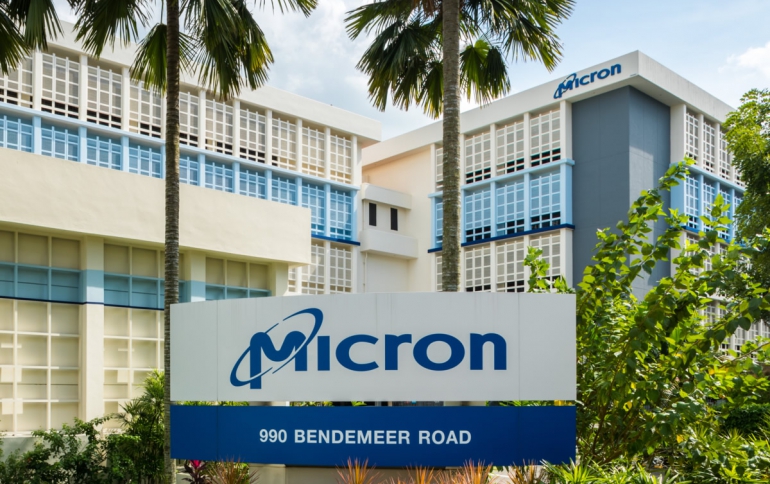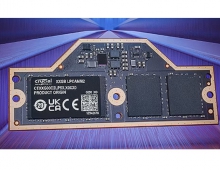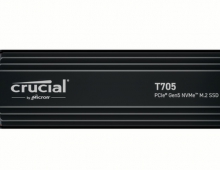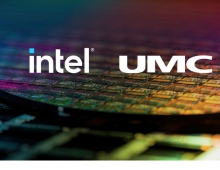
U.S. Indicts UMC, China's Jinhua and Former Micron Employees For Stealing Micron Trade Secrets
The U.S. Justice Department on Thursday unveiled an indictment against United Microelectronics Corporation (UMC), Fujian Jinhua Integrated Circuit (Jinhua) and three former employees of Micron's Taiwan unit for conspiracy to commit trade secret theft, economic espionage and related crimes.
In addition, the United States filed a civil lawsuit seeking to enjoin the further transfer of the stolen trade secrets and to enjoin certain defendants from exporting to the United States any products manufactured by UMC or Jinhua that were created using the trade secrets at issue. The indictment was filed on September 27, 2018, and unsealed today. The civil lawsuit was filed today.
"I am announcing that a grand jury in San Francisco has returned a multi-defendant indictment alleging economic espionage on the part of a state-owned Chinese company, a Taiwanese company, and three Taiwan individuals for an alleged scheme to steal trade secrets from Micron, an Idaho-based semi-conductor company," said Attorney General Sessions. "Micron is worth an estimated $100 billion and has a 20 to 25 percent share of the dynamic random access memory industry—a technology not possessed by the Chinese until very recently. As this and other recent cases have shown, Chinese economic espionage against the United States has been increasing—and it has been increasing rapidly. I am here to say that enough is enough. With integrity and professionalism, the Department of Justice will aggressively prosecute such illegal activity."
The three former Micron employees named in the indictment are former Micron Memory Taiwan chairman Stephen Chen and engineers JT Ho and Kenny Wang.
According to the indictment, the defendants were engaged in a conspiracy to steal the trade secrets of Micron Technology, Inc., the only United States-based company that manufactures DRAM. According to the indictment, Micron maintains a significant competitive advantage in this field due in large part from its intellectual property, including its trade secrets that include detailed, confidential information pertaining to the design, development, and manufacturing of advanced DRAM products.
Prior to the events described in the indictment, the PRC did not possess DRAM technology, and the Central Government and State Council of the PRC publicly identified the development of DRAM and other microelectronics technology as a national economic priority.
UMC mass produces integrated-circuit logic products based on designs and technology developed and provided by its customers. Jinhua is a state-owned enterprise of the PRC, funded entirely by the Chinese government, and established in February 2016 for the sole purpose of designing, developing, and manufacturing DRAM.
"We appreciate the U.S. Department of Justice's decision to prosecute the criminal theft of our intellectual property," said Joel Poppen, senior vice president, legal affairs, general counsel and corporate secretary at Micron Technology. "Micron has invested billions of dollars over decades to develop its intellectual property. The actions announced today reinforce that criminal misappropriation will be appropriately addressed."
UMC dismissed the charges.
"The allegations in the indictment and complaint are virtually the same as allegations in a civil complaint previously filed against UMC by Micron," the Taiwan-based company said in its statement issued by the Taiwan Stock Exchange (TWSE). "UMC regrets that the US Attorney's Office brought these charges without first notifying UMC and giving it an opportunity to discuss the matter."
UMC claimed it has been developing ICs and other chip technologies for four decades, and has devoted vast resources to its technology R&D and owns a portfolio of patents worldwide. "UMC takes seriously any allegation that it may have violated any laws and fully intends to respond to these allegations accordingly," the company noted.
Chen was a General Manager and Chairman of an electronics corporation that Micron acquired in 2013. Chen then became the president of a Micron subsidiary in Taiwan, Micron Memory Taiwan, responsible for manufacturing at least one of Micron’s DRAM chips. Chen resigned from MMT in July 2015 and began working at UMC almost immediately. According to the indictment, while at UMC, Chen arranged a cooperation agreement between UMC and Fujian Jinhua whereby, with funding from Fujian Jinhua, UMC would transfer DRAM technology to Fujian Jinhua to mass-produce. The technology would be jointly shared by both UMC and Fujian Jinhua. Chen later became the President of Jinhua and was put in charge of its DRAM production facility.
While at UMC, Chen recruited numerous MMT employees, including Ho and Wang, to join him at UMC. Prior to leaving MMT, Ho and Wang both stole and brought to UMC several Micron trade secrets related to the design and manufacture of DRAM. Wang downloaded over 900 Micron confidential and proprietary files before he left MMT and stored them on USB external hard drives or in personal cloud storage, from where he could access the technology while working at UMC.
In December 2017, Micron filed suit against UMC and Jinhua in the U.S. District Court for the Northern District of California for the misappropriation of Micron intellectual property and trade secrets.
If convicted, the individual defendants face a maximum sentence of 15 years imprisonment and a $5,000,000 fine for economic espionage charges, and 10 years imprisonment for theft of trade secrets charges. Each company faces forfeiture and a maximum fine of more than $20 billion.
The action is the latest in a long list taken to fight what some in the Trump administration call China’s cheating through intellectual property theft, illegal corporate subsidies and rules hampering U.S. corporations that want to sell their goods in China.
China and the United States have imposed tariffs on hundreds of billions of dollars of each other’s goods, and U.S. President Donald Trump has threatened to slap tariffs on the remainder of China’s $500 billion-plus exports to the United States if the disputes cannot be resolved.





















